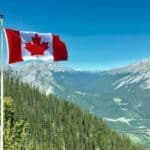This type of question where we compare two cities is quite common, as an example Is Tokyo bigger than London? Sometimes it is difficult to remember the population of each city or how the population has evolved since the last time we looked at the data.
Tokyo and London population
Population of Tokyo
Tokyo, the capital of Japan, according to the 2022 census provided by the Statistics Bureau of Japan has a population of 13,988,129 people.
Population of London
In the case of London, also known as “The Smoke”, the number of people living in the city according to the 2021 census is 8,799,800.
So if your question is:
How big is Tokyo compared to London?
Considering the population of each city, Tokyo is bigger than London, according to 2022 census data.
Tokyo has 13.9 million people and London 8.7 million, so Tokyo has 5.1 million more people than London.
Population trend of Tokyo and London
According to the historical record, since 2000 the population of Tokyo has grown by 15.95% and the population of London has grown by 20.18%.
Taking into consideration that the growth in population of Tokyo is smaller than London, the difference in population will be shrinking in the long run.
Is Tokyo’s total land area bigger than London?
Usually in a comparative question between two cities we want to know in which city lives more people. However, there is another unit of measurement that also refers to the size of the city and this is the total area.
In the case of the area comparison between Tokyo and London, the total area of Tokyo is bigger than London.
Tokyo has a total area of 847.14 sq mi (2,194.07 km²) and London, also known as “The Smoke”, has 606.96 sq mi (1,572.03 km²).
Which city has a higher population density? Tokyo or London
There is a third metric that is often used to compare cities, which is based on the two data points we presented earlier: population and area.
Population density is obtained by dividing the number of individuals living within a specific location by the total area of the location. In our comparisons as a unit of area we use square miles and km².
If the question we are trying to solve is whether the population density is greater in Tokyo or London, we must inform you that the population density is {{densitycomparison}} in Tokyo.
Tokyo Population Density
The density of Tokyo, the capital of Japan, is 16,512.18/sq mi (6,375.43/km²).
Population Density of London
The population density of London is 14,498.15/sq mi (5,597.73/km²).
Population density for both Tokyo and London, has been calculated using only land area, ignoring any water area belonging to the city.
Conclusion on which city is bigger Tokyo or London
As we have been able to observe with the data provided in the comparison between both cities, Tokyo is a larger city than London in terms of population.
On the other hand, in terms of total area Tokyo is bigger than London and if what we take into account is the population density, then we must indicate that the density of Tokyo is larger than London.
Tokyo is the most populated “city” in Japan, and it is in the Top 10 cities by population in Asia. However, Tokyo is not the city with the biggest Area in Japan, Takayama with 2,177.61 square kilometers (840.78 sq mi) is the largest city by area in Japan. However, technically Tokyo it can not be considered a city — it’s a prefecture formed by several “wards” (each with the status of city).
Tokyo and London are both the capitals of their countries, Japan and the United Kingdom, also both have been recent hosts of Olympic Games (Tokyo 2020 and London 2012) and both hold one of the seven Major Marathons in the World. Not everything is sport in Tokyo and London as both are amazing cities to explore and visit because they are full of incredible attractions and events to enjoy any time of the year.
Other cities compared with London or Tokyo
Sources Used:
All information regarding number of people and annual population growth is extracted from Statistics Bureau of Japan and Office for National Statistics databases.
The total area data of each city has been extracted from Wikipedia.
Photo by Louie Martinez







